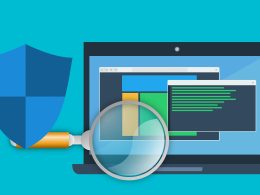Identity theft affects thousands of Americans a year; you should know how to protect yourself from cybercrimes and this particular type of identity theft.
Typical identity theft is when someone steals your information and impersonates you to commit fraud. Criminals could forge stolen checks written in your name or use your ATM card to withdraw money from your accounts. Criminal Identity Theft is a little more complicated.
Criminal identity theft is a type of identity theft in which a person uses someone else’s personal information to commit a crime. The personal information stolen can include the victim’s name, date of birth, social security number, and other identifying details. The criminal then uses this information to obtain fraudulent identification documents or to impersonate the victim when arrested or charged with a crime.
To evade a crime, the criminal intentionally misleads the authorities into believing they are someone other than themselves.
The impact of criminal identity theft on the victim can be significant and long-lasting. The victim may face legal troubles or be subject to arrest warrants, and their credit score and financial stability can be seriously affected. It can be difficult for victims of criminal identity theft to clear their names and remove the criminal record associated with their identity.
Criminal identity theft is a serious offense and is punishable by law. Perpetrators can face jail time, fines, and other penalties for this type of crime. It is important for individuals to take steps to protect their personal information, such as monitoring their credit report, using strong passwords, and being cautious about sharing personal information online.
Often, the person whose identity is stolen will not realize that their information is at risk until there’s damage to their credit score and reputation, resulting in severe financial and legal consequences for the victim. They may be held responsible for the actions of the criminal who used their identity.
How Do I Know If My Identity Was Stolen?
Sometimes, the victim may not be aware that their identity has been stolen until they receive a notice from a financial institution or law enforcement agency.
There are a number of signs that may indicate that your identity has been stolen. Here are some common warning signs:
- Unfamiliar accounts or charges: If you notice unfamiliar accounts on your credit report or unauthorized charges on your credit card or bank statements, it could be a sign that someone has stolen your identity.
- Receiving bills or statements for accounts you didn’t open: If you receive bills or statements for credit cards, loans, or other accounts that you didn’t open, it could be a sign that someone has used your personal information to open them.
- Unexpected denial of credit or loan applications: If you are denied credit or a loan unexpectedly, it could be a sign that someone has used your identity to open new accounts or take out loans.
- Unusual activity on your credit report: If you see unusual activity on your credit report, such as new accounts or loans that you didn’t open or apply for, it could be a sign of identity theft.
- Suspicious emails, phone calls, or texts: If you receive suspicious emails, phone calls, or text messages asking for personal information or claiming to be from a legitimate source, it could be a sign of a phishing scam or other attempt to steal your identity.
You could receive calls from debt collectors inquiring about loans you did not take out but appear in your name. You could also get calls from law enforcement regarding crimes you have not committed. If the police tell you that cybercriminals committed these crimes in your name, but you are innocent, this could mean that someone is committing criminal identity theft with your information.
How Do People Get My Information?
Criminals may obtain a victim’s personal information through various means, such as stealing mail or trash, hacking into computer systems, or phishing scams. Once they have the data, they can use it to impersonate the victim and carry out illegal activities.
If your information is unprotected, it can be sold on the dark web. This can happen during unsecured online purchases or when registering for website accounts.
If you do not have antivirus software downloaded on your devices, you are susceptible to cyber attacks that can steal and sell your information on the dark web. You could also be vulnerable to email phishing attacks.
How Do I Protect My Information?
If you believe you have been a victim of criminal identity theft, it is crucial to take immediate action. This may include notifying your bank and credit card companies, filing a police report, and working with credit reporting agencies to freeze your credit and monitor your accounts for fraud. It is also essential to protect your personal information in the future, such as shredding sensitive documents and using strong passwords for online accounts.
There are a few ways to prevent your information from being used in criminal identity theft. Use credit cards for all major purchases so transactions are more secure. Reviewing your credit reports regularly and creating different passwords across all your accounts is also wise. This makes it harder for criminals to have access to your information. You can review your credit reports at Equifax, Transunion, and Experian.
To be fully protected, you must install cybersecurity software on your devices. Agency offers enterprise-grade antivirus software that protects you and your family’s information from cyber attacks. We offer dark web scans to protect your information from attackers attempting to steal your information. Finally, our service is backed by a $1m cyber guarantee. If you become a victim of Criminal Identity Theft, you will have coverage for damages and support in restoring your identity.







